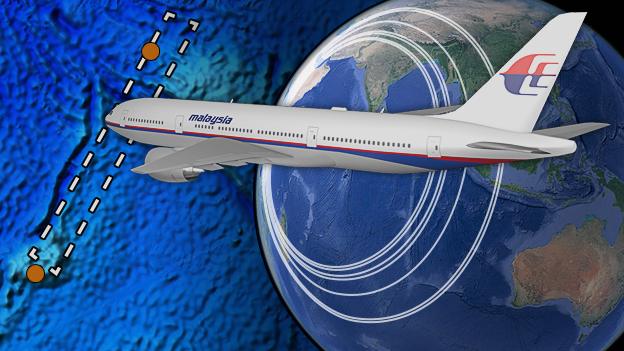MH370 'must not go into oblivion', says pilot's sister
- Published
The sister of MH370 Chief Pilot Zaharie Shah tells the BBC why she thinks he did not cause its disappearance
Sakinab Shah doesn't give many interviews.
She's wary, because her brother was Captain Zaharie Ahmad Shah, the man flying MH370 on the night it vanished more than two years ago.
"I've got to lend him a voice. He's gone. If I don't talk on his behalf, if I don't portray him as the real person that he was, nobody will be any the wiser."
Captain Shah was an experienced pilot with an unblemished record, yet after the Malaysian government said that the plane's disappearance was deliberate, some fingers began pointing at the skipper in the cockpit.
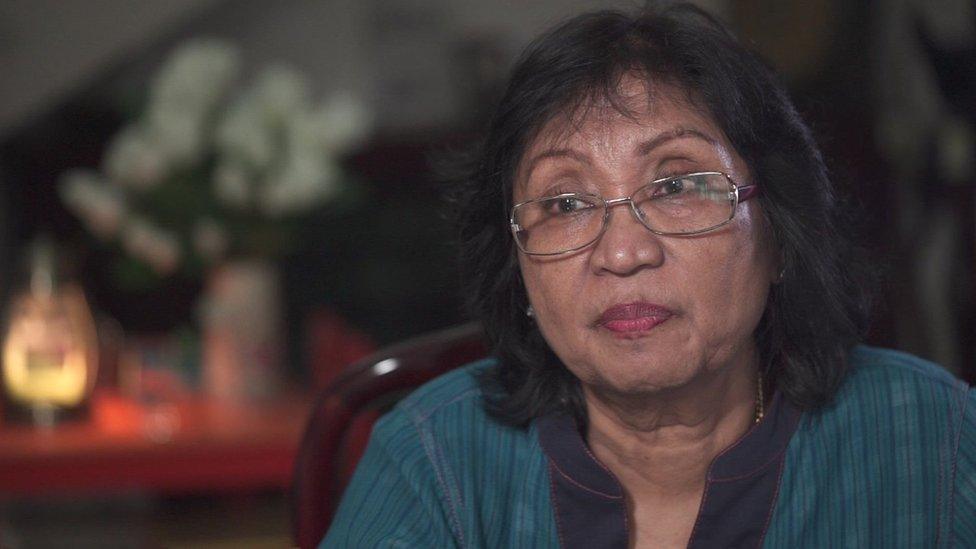
Sakinab Shah: "There was not a moment when we doubted our brother"
Who were the pilots of flight MH370?
I met Sakinab at her home in Kuala Lumpur, where her brother was a regular visitor. He lived nearby. She told me about the moment he fell under suspicion.
"It was very hurtful," she said. "It added to the stress of the loss. A very close brother of mine is missing, and on top of that I have to contend with all the accusations. It's a very difficult situation. We cry often, my siblings and I, and my nieces are all so affected because they were so close to their uncle."
A dream come true
Investigators have dug deep, looking for any kind of motive. They've found nothing.
Zaharie had no money problems, no mental health problems, no marriage problems, no drug or alcohol problems, no history of odd behaviour. They even checked if he'd recently taken out life insurance and analysed his body language going through security that day (he's on CCTV). Zilch.
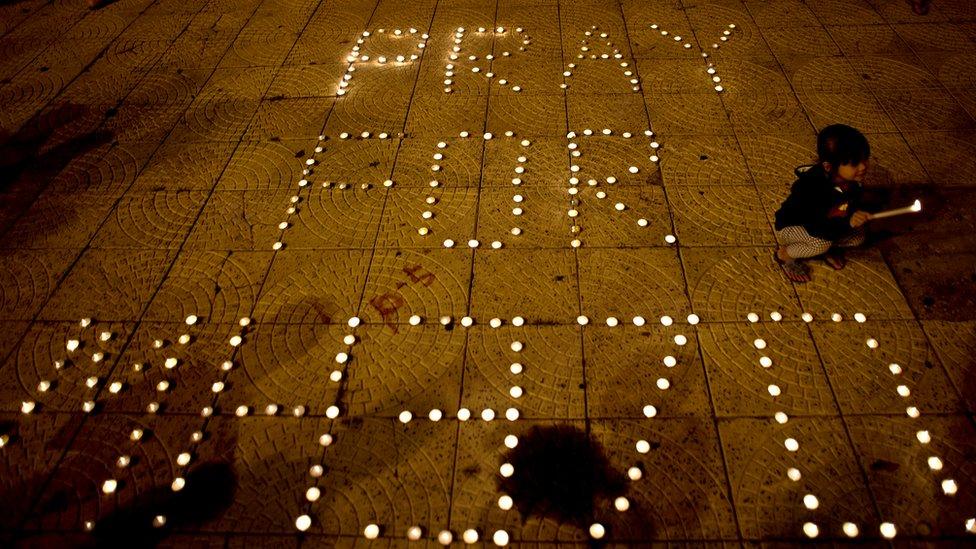
Investigators are still looking for answers as to how a Malaysian Airlines plane with 239 people on board disappeared
Sakinab and Zaharie come from a big, close family, nine children in all. She told me something she's not shared with the world before. All the brothers and sisters got together soon after MH370 disappeared.
"We had brainstorming sessions. About a week after, all of us gathered in Penang. There was not a moment when we doubted our brother. Nothing to make us think he was turning rogue."
Sakinab showed me a picture of Zaharie sitting in the chair we're standing next to.
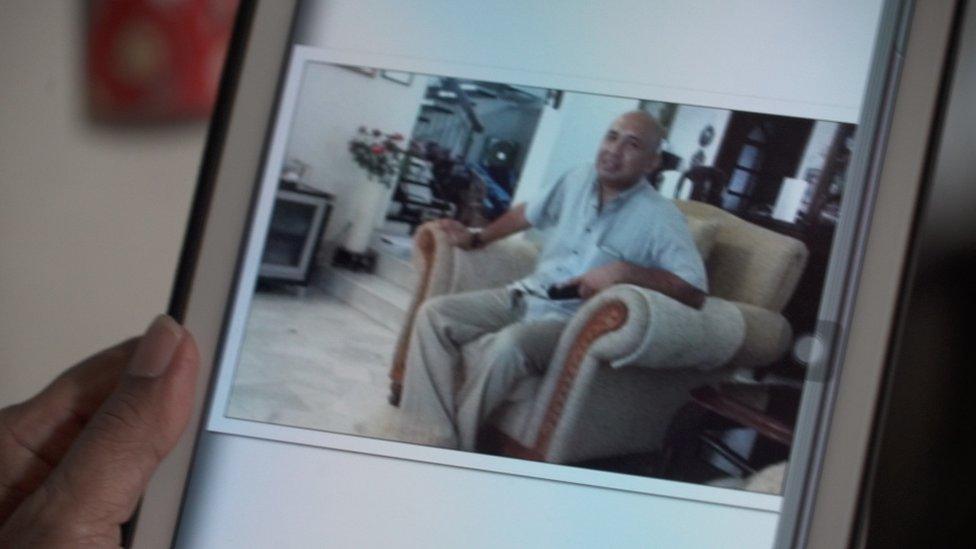
He was always around her house, teasing the nieces and nephews, helping out with DIY.
They'd had lunch just two weeks before MH370 disappeared.
"We went to a local restaurant. He was his normal self, making jokes, which is why it's just incredible with all the accusations coming his way. I find it hard to accept."
Not only has Sakinab lost a brother, she's also dealing with rumours that he may have killed hundreds of people.
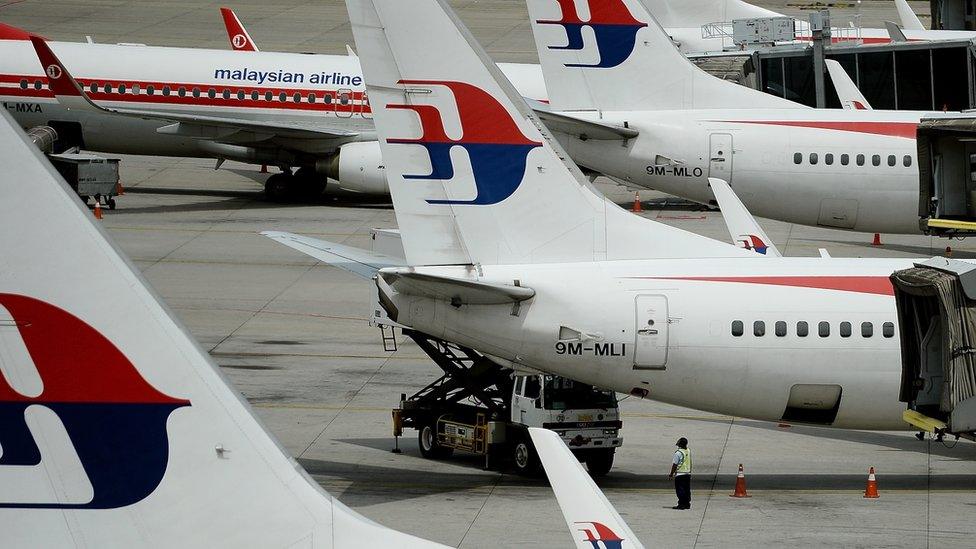
Captain Zaharie worked with Malaysia Airlines for 30 years
"We were brought up in a very decent family. A simple village boy, from poor beginnings and he became a commercial pilot. It was a dream come true. He stayed with Malaysia Airlines for 30 years, recorded over 18,000 hours of flying time. No bad record, nothing untoward. He was just a few years from retirement. Do you think he would want to throw this all away?"
Fear of reprisals
I've spoken to several families of those on board MH370 and they all describe being in an agonising limbo. It's the not knowing.
But at least they are able to talk to each other, to share the experience.
Little comfort I know, but it's not something Sakinab can do. She's been told that she is welcome to come to events, but she's wary of upsetting anyone by turning up.
"We didn't want to attend for fear of reprisals. It is very deeply rooted in us, the fear of reprisals from families. Despite the fact that we were given assurances and told that we would be welcome at commemorative events. None of them are blaming it on him."

Families of those on board MH370 describe waiting as being in an agonising limbo
Captain Shah had a wife and children. They've never spoken to the media and Sakinab told us they've not really been in touch with the rest of the family either.
To date, there is absolutely no concrete proof that can tell us whether MH370 disappeared because of an accident or a deliberate act by somebody on the flight.
The whole thing just doesn't add up. A routine flight just dropping off the radar and apparently ending up 5,000 miles off course, in one of the most desolate corners of the globe, with no distress call.
It's a riddle that splits the flying world.
A matter of time
Small parts of the aircraft are now washing up on beaches in the Indian Ocean but none has yet revealed the fate of the plane.

The best hope of an answer still lies in the huge underwater sea search currently taking place six days sail from the Australian coast. But that will be wound up in a matter of months.
So we'll probably never understand the fate of flight MH370.
"It's very sad. I hope very much that the authorities will not call off this search," says Sakinab.
"They have to find remnants. They have to find the voice recorders. The relatives of the passengers and the crew need closure. So the story of MH370 must not be allowed to go into oblivion."

MH370-linked debris
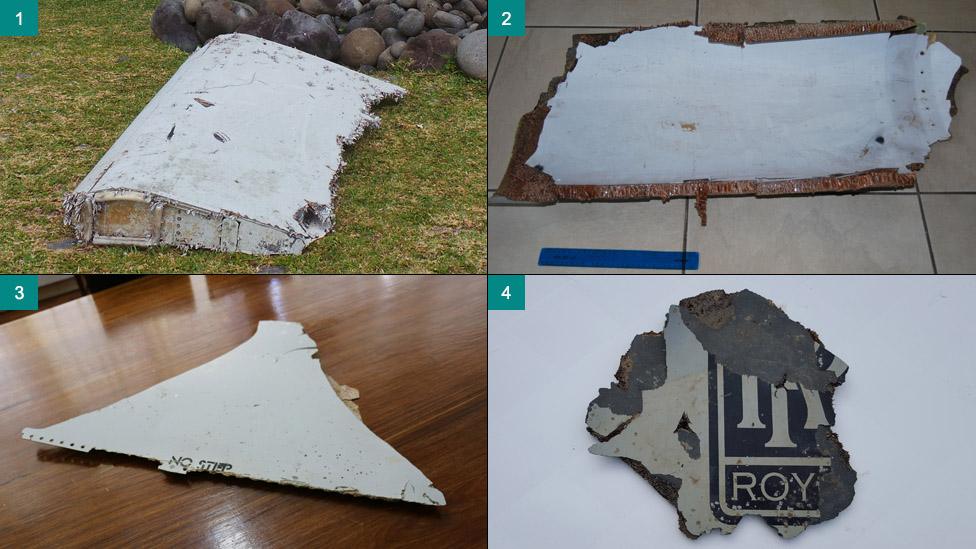
1. A section of wing called a flaperon, found on Reunion Island in July 2015 - confirmed as debris in September 2015
2. Horizontal stabiliser from tail section, found in Mozambique in December 2015
3. Stabiliser panel with "No Step" stencil, found in Mozambique in February 2016
4. Engine cowling bearing Rolls-Royce logo, found in March 2016 in Mossel Bay, South Africa
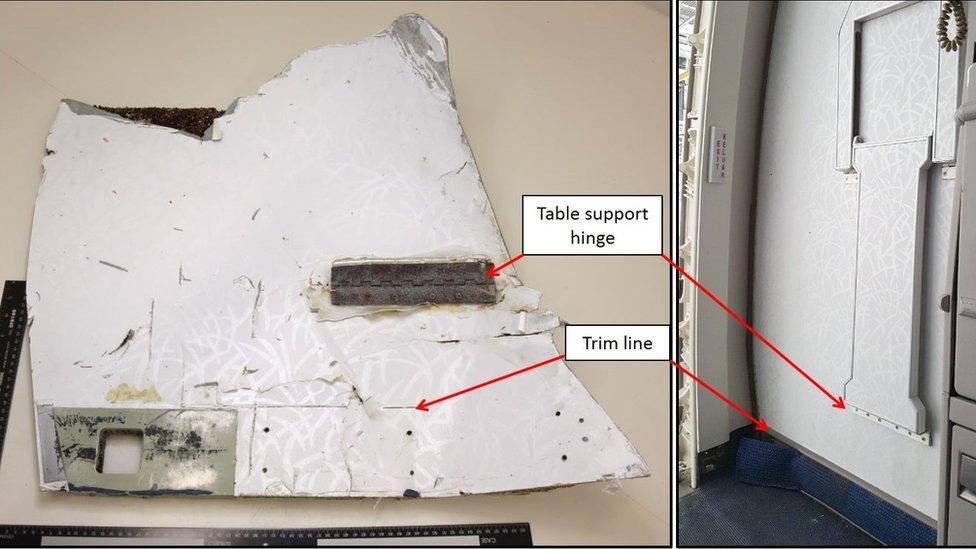
5. Fragment of interior door panel found in Rodrigues Island, Mauritius in March 2016

- Published22 July 2016
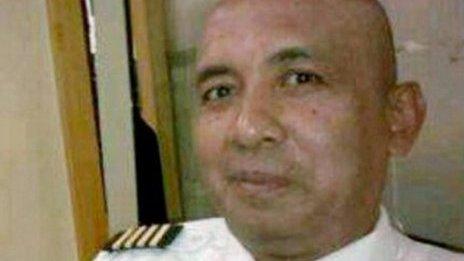
- Published26 May 2016
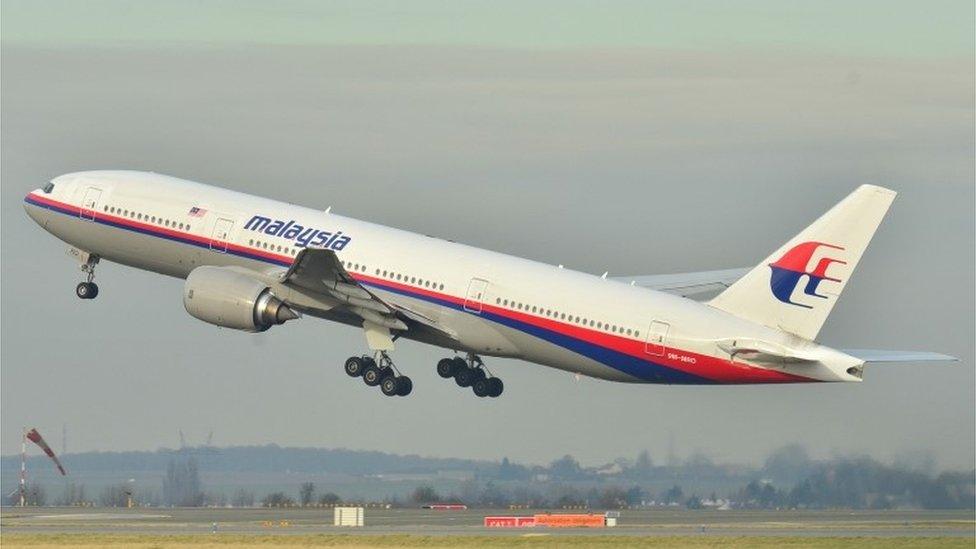
- Published16 April 2015
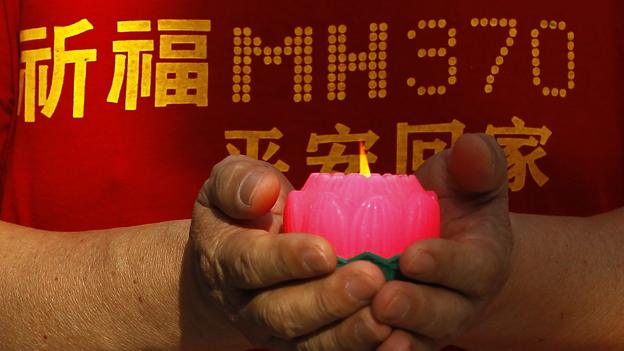
- Published29 January 2015
